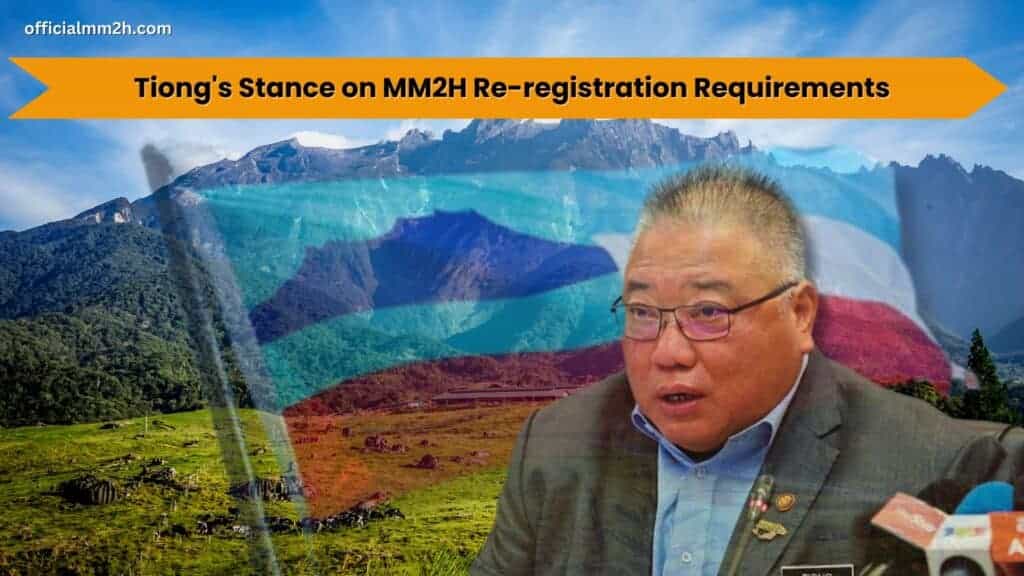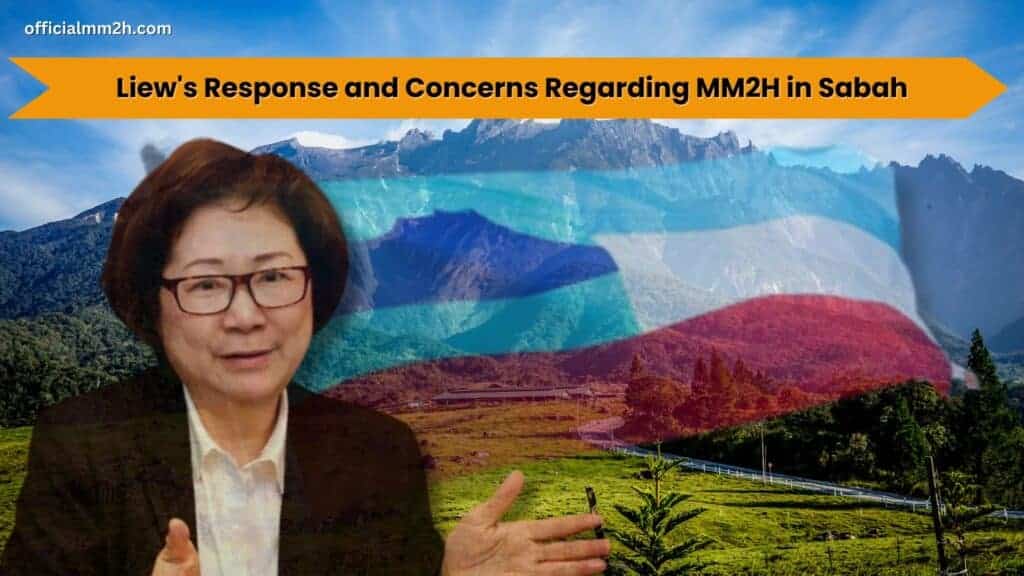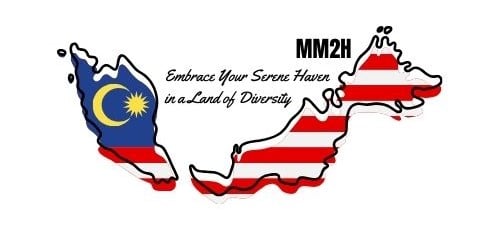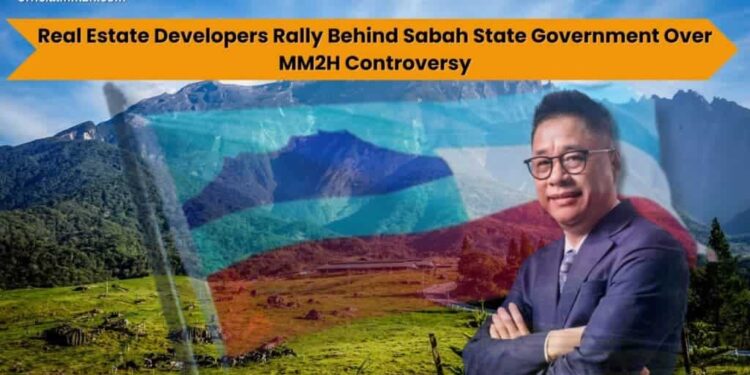Real Estate Developers Support State Government On Sabah MM2H Controversy
Trying to unearth details on the Sabah-MM2H controversy can feel like searching for a needle in a metaphorical haystack. I know the struggle all too well. Through relentless digging, I’ve discovered that real estate developers are not just supporting but standing shoulder-to-shoulder with the Sabah state government.
In my upcoming article, I’ll walk you through why this alliance is essential and what it portends for the future of Sabah. Trust me, it’s a fascinating tale!
Exploring the MM2H Controversy

Sabah’s Position on MM2H Amid National Policies has sparked a heated debate. The Malaysian My Second Home (MM2H) program has been experiencing significant changes, and Sabah State Government’s stance amidst these modifications is stirring discussions across the country.
Sabah’s Position on MM2H Amid National Policies

Sabah had its say on the Malaysia My Second Home (MM2H) program amid changes by the national government. The area’s leaders felt left out because they were not asked for their thoughts.
These leaders, including Sabah Tourism, Culture and Environment Minister Datuk Christina Liew, pointed out that MM2H in Sabah is different than in other parts of Malaysia. They think the program fits well with agreements like the Malaysia Agreement 1963 (MA63) and Immigration Act 151.
So, they want the federal government to think again about their decision.
The state believes that discussing things can help keep MM2H good for Sabah’s future.
This move shows how important it is for areas like Sabah to have a say in decisions that affect them. And this is especially true when those decisions impact economic matters such as tourism and real estate development in places like Kota Kinabalu and beyond.
By standing up for local interests, Sabah aims to protect its unique position within Malaysia’s broader goals while highlighting its potential benefits from programs designed to its distinct needs.
Real Estate Developers Rally Behind Sabah Government
Real estate developers in Sabah have shown support for the government amid the MM2H controversy.
Impact of MM2H on Sabah’s Property Market
The MM2H program does great things for Sabah’s property scene. It brings in more money and people want to buy or rent homes here. This is because the program makes it easier for folks from other countries to live in Sabah.
More buyers mean houses sell faster and sometimes for higher prices, which is good news for anyone selling their place.
Builders and agents get busy too, thanks to MM2H. With licensed agents making sure everyone gets top-notch service, there’s a push for better quality homes. Plus, this whole thing boosts our tourism.
People come to stay and they fall in love with Sabah, spending their money locally. So yeah, MM2H is kind of a big deal around here – lifting up our property market while making our state an even nicer place to live and visit.
Why Developers Support the State’s Decision

The Sabah Housing and Real Estate Developers Association (SHAREDA) has voiced its significant concern and disappointment following the Federal Ministry of Tourism, Arts and Culture (MOTAC)’s decision to suspend the licenses of all Malaysia My Second Home (Sabah-MM2H) agents.
Datuk Chua Soon Ping, the president of SHAREDA, stated that this decision has negatively impacted the launch of the Sabah-MM2H program, as there are now no agents available to effectively market it.
“Over two years ago, we proposed the Sabah-MM2H program to the state government as an essential stimulus for our market, promising considerable economic benefits,” Chua explained. “Our proposal, rooted in thorough studies of successful second home programs in nearby states and countries, was rigorously evaluated and received approval from the Tourism Ministry and the State Cabinet despite the turnover of two ministers and two permanent secretaries during the process.”
Chua highlighted that the sudden and unexplained suspension by MOTAC, announced just days before the scheduled launch on June 1, has undermined the preparations of licensed agents in Sabah poised to handle the influx of potential applicants.
He further noted that Sabah has traditionally been shortchanged in revenue allocation, despite explicit constitutional rights. The Sabah-MM2H program, therefore, offers a significant opportunity to correct this disparity, with the potential to substantially improve state infrastructure like water, electricity, roads, and drainage systems.
“The new Sabah-MM2H policy aims to serve as a potent economic driver by leveraging our status as a top tourism destination to bolster the economy. We are confident that this program will enhance Sabah’s competitiveness with neighboring countries and boost our local economy through increased foreign investment and tourism,” Chua added.
Chua made a strong appeal to the federal government to reconsider their decision and support the smooth execution of the Sabah-MM2H program, emphasizing the need to respect the special powers granted to the Chief Minister over foreign residency policies under the Malaysia Agreement 1963 (MA63) and the Immigration Act 151.
Forecasting Sabah’s Future with MM2H
Forecasting Sabah’s Future with MM2H will bring positive economic advantages. It’s an opportunity for Sabah to attract more foreign investors and boost its property market.
Economic Advantages for Sabah Through MM2H
The MM2H program can bring more money into Sabah. It can also help improve the state’s infrastructure and boost tourism. By providing professional and quality service through licensed agents, the program ensures transparency and reliability for applicants.
The online applications and availability of local agents offer convenient alternatives to federal agents, making the process more accessible.
Chua concluded by asserting SHAREDA’s readiness to support the state in launching the Sabah-MM2H program. “We are prepared to take on the role of agents, ensuring applicants meet the property purchase requirement of over RM600,000. By connecting with our international network of agents, we aim to fill any gaps and provide sustainable solutions until a permanent resolution is found. Alternatively, introducing an online application process could streamline the application procedure.”
“We urge the federal government to acknowledge the critical importance of the Sabah-MM2H program to our state’s economic future and to facilitate its seamless launch and operation,” Chua said.
Developing additional revenue streams for Sabah is crucial. The MM2H scheme supports this goal by potentially injecting fresh funds into the state economy. This could have a positive impact on various sectors such as real estate, hospitality, and retail as more people come to reside or invest in property in Sabah.
Additionally, an influx of expatriates under MM2H may contribute to economic diversification, thereby reducing dependency on a single industry or sector.
Conclusion
Real estate developers in Sabah are standing behind the state government during the MM2H controversy. They believe that this program can bring positive economic benefits to Sabah by attracting expatriates and retirees.
The support from developers indicates their confidence in the potential of the Sabah-MM2H program to boost the state’s property market and economy. With this backing, it’s clear that many see promising opportunities ahead for Sabah through this initiative.
The real estate developers‘ backing signifies a strong vote of confidence in Sabah’s decision on MM2H. It underlines their belief in its ability to drive economic growth and enhance the property market in Sabah.




